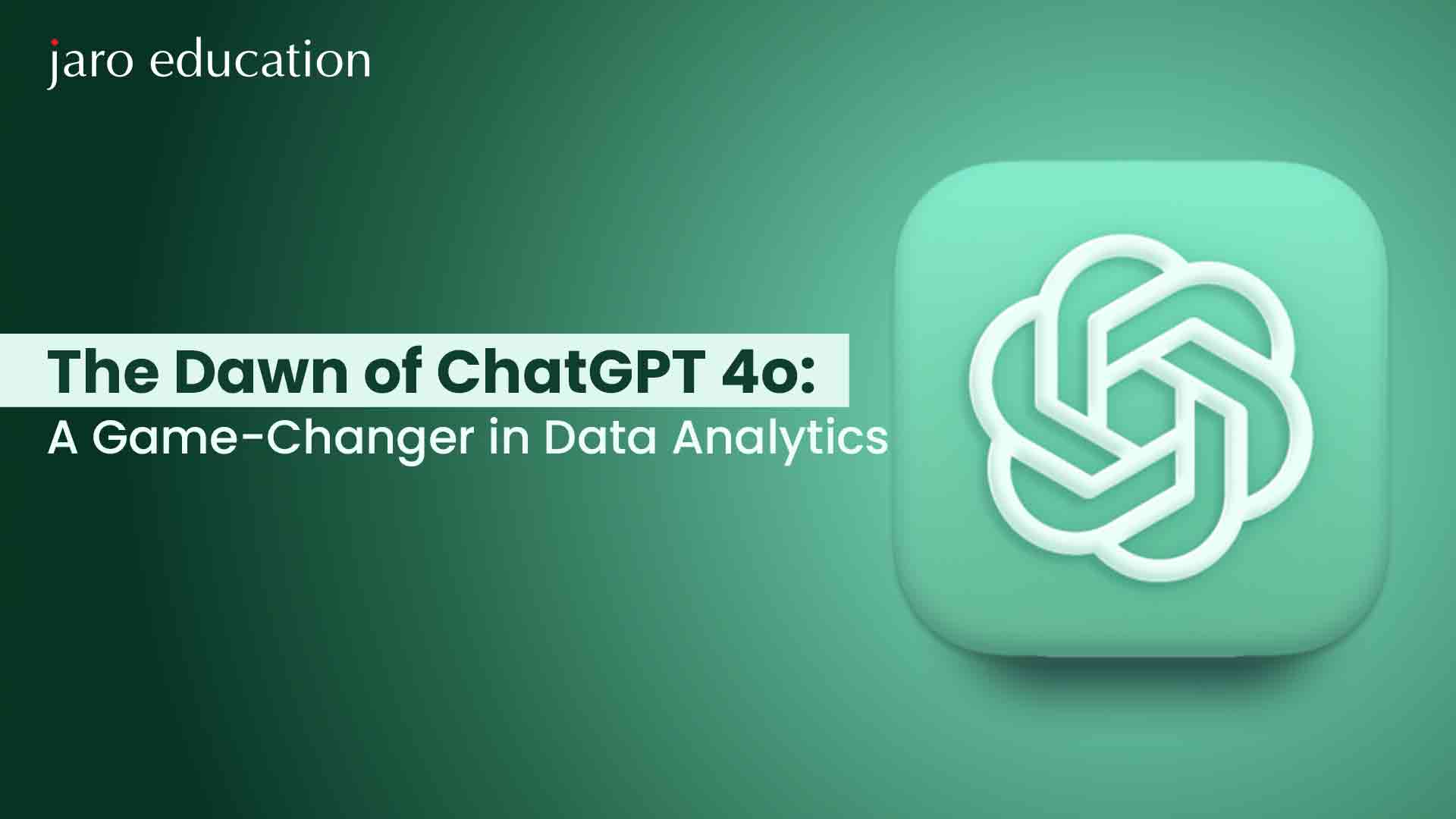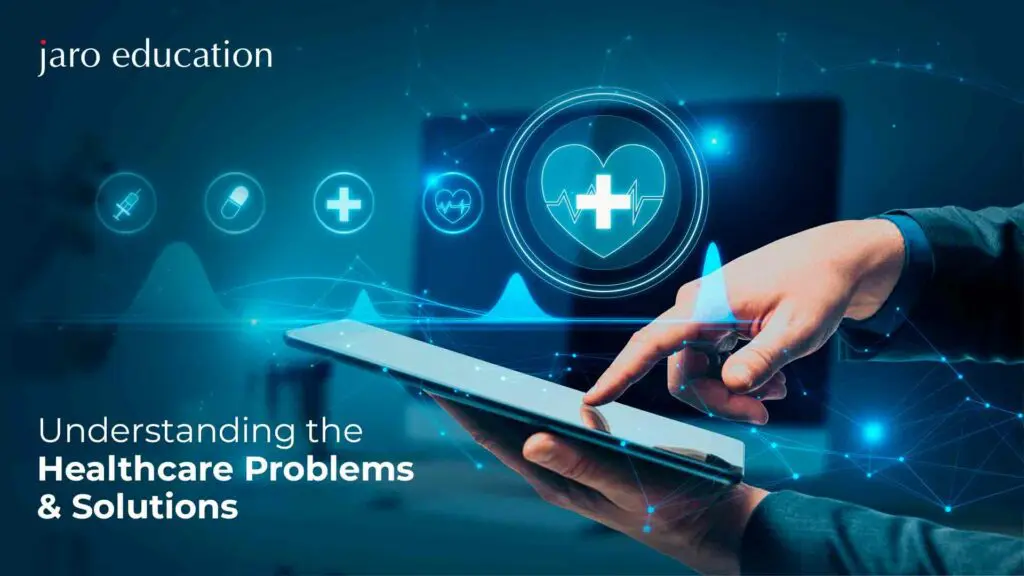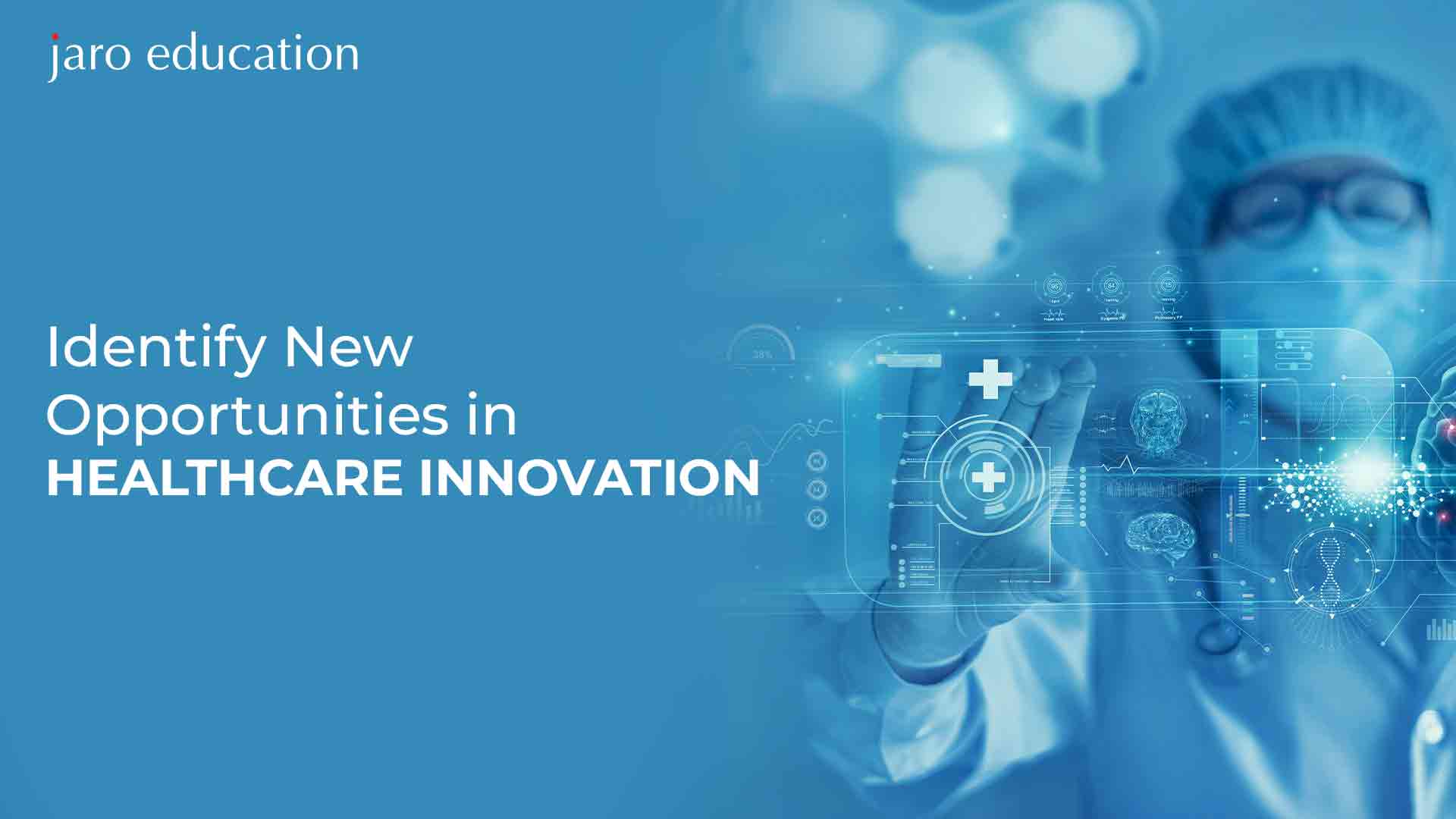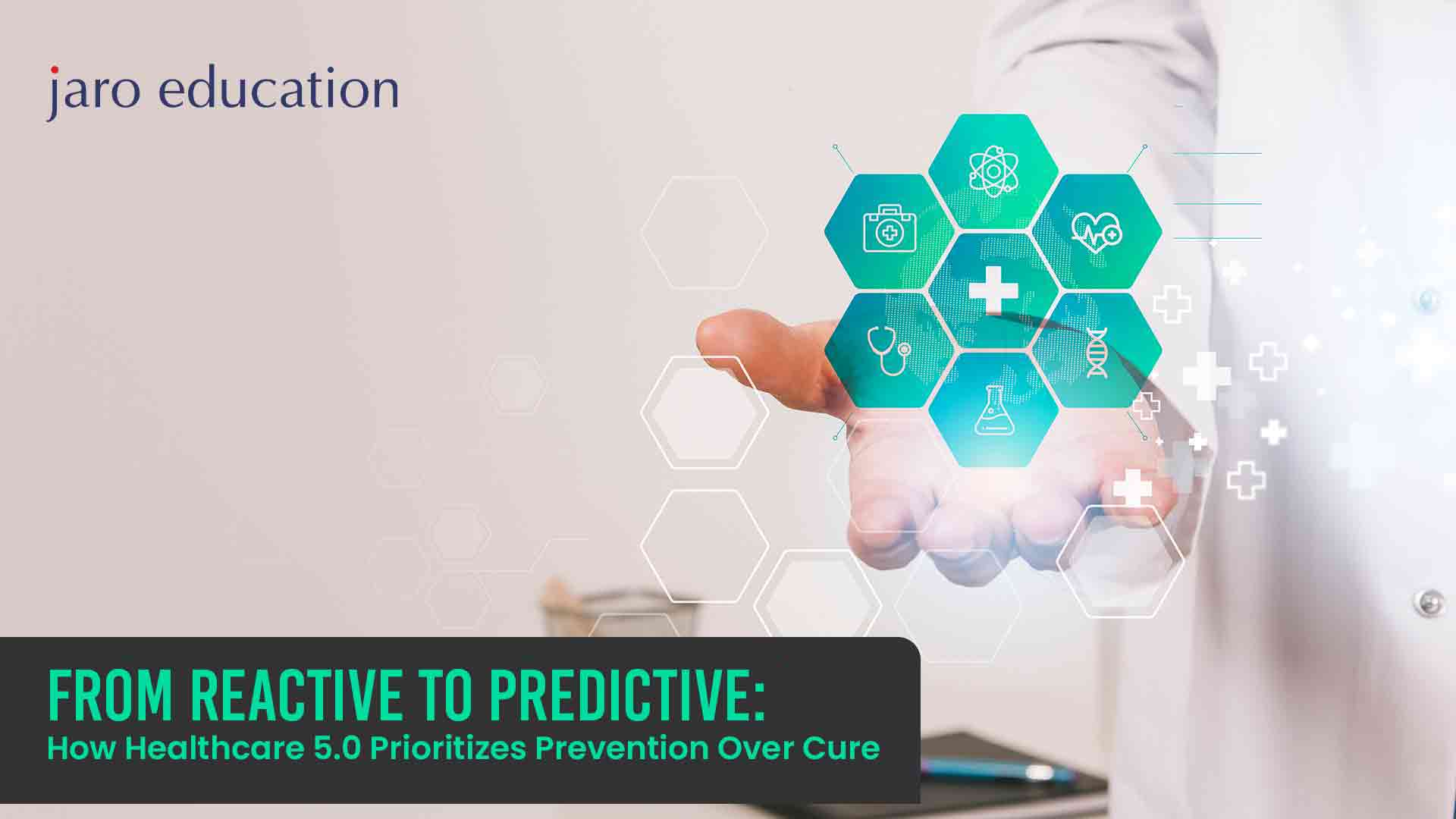
- jaro education
- 8, June 2024
- 10:47 am
Predictive analytics in healthcare are revolutionizing healthcare as we see it. In the dynamic realm of healthcare, a significant shift is occurring, transitioning from traditional reactive healthcare models of healthcare towards more proactive and predictive approaches. This evolution, emblematic of Healthcare 5.0, marks a departure from the conventional system of addressing illnesses after their onset towards one that prioritizes prevention and early intervention. This introduction sets the stage for our exploration of this transformative journey.
Traditionally, healthcare systems have largely operated in a reactive manner, intervening only after patients fall ill. However, with the advent of Healthcare 5.0, there’s a paradigmatic shift towards predictive models that utilize advanced analytics, artificial intelligence, and data-driven insights to forecast health risks and anticipate medical needs. This transition represents a fundamental reimagining of healthcare delivery, emphasizing proactive strategies aimed at maintaining wellness rather than solely treating illness.
The Executive Programme in Healthcare for Industry 5.0, offered by CEP, IIT Delhi, stands at the forefront of this transformative journey, equipping healthcare professionals with the knowledge
Table of Contents
and skills necessary to navigate the complexities of predictive analytics in healthcare. Through comprehensive coursework and hands-on training, this program empowers participants to harness the power of data-driven insights to drive proactive healthcare interventions and improve patient outcomes in the era of Healthcare 5.0.
In today’s healthcare landscape, there’s a growing recognition of the importance of prioritizing prevention over cure. By identifying and addressing health risks before they escalate into full-blown illnesses, healthcare providers can not only improve patient outcomes but also reduce healthcare costs and alleviate strain on healthcare resources. This proactive approach to healthcare aligns with the overarching goals of Healthcare 5.0, emphasizing wellness, prevention, and personalized care.
Predictive analytics in healthcare, powered by advanced technologies such as artificial intelligence and machine learning, plays a central role in enabling proactive healthcare interventions and improving patient outcomes. By analyzing vast amounts of patient data, predictive analytics in healthcare can identify patterns, trends, and risk factors, allowing healthcare providers to anticipate health issues, intervene early, and tailor interventions to individual patient needs. This transformative capability has the potential to revolutionize healthcare delivery, ushering in an era where prevention takes precedence over cure, and patient-centric care becomes the norm.
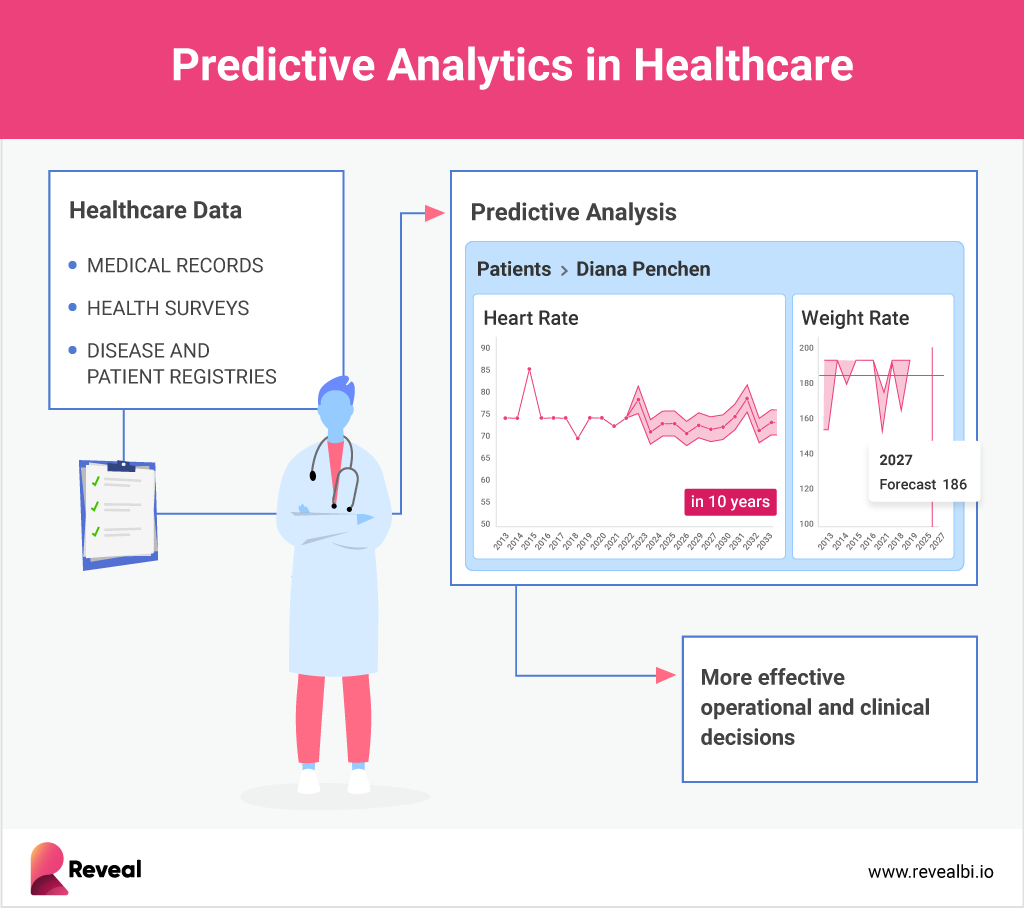
Evolution of Healthcare Towards Predictive Models
In this section, we embark on a journey through the historical evolution of healthcare delivery, tracing the trajectory from reactive healthcare treatment paradigms to the emergence of proactive prevention strategies, underpinned by predictive analytics in healthcare.
Throughout history, healthcare has predominantly operated within reactive healthcare frameworks, where interventions occur after the onset of illness or symptoms. While these approaches have been effective in treating acute conditions, they often fall short in addressing the complexities of chronic diseases and the broader determinants of health. However, as healthcare systems evolve, there’s a growing recognition of the need to shift towards proactive models that prioritize prevention and early intervention.
Traditional healthcare models, centered around episodic care and fee-for-service reimbursement, face significant challenges in managing the burgeoning burden of chronic diseases and escalating healthcare costs. These models are ill-equipped to address the multifactorial nature of chronic conditions, which require comprehensive, continuous care and proactive interventions to mitigate risks and prevent complications. As a result, there’s a pressing need for transformative approaches that can effectively address these challenges and improve health outcomes.
In recent years, predictive analytics has emerged as a transformative tool in healthcare, offering unprecedented capabilities for early detection, risk stratification, and personalized preventive care. By leveraging advanced algorithms and machine learning techniques, predictive analytics in healthcare can analyze vast amounts of data from diverse sources, including electronic health records, wearable devices, and genomic profiles, to identify patterns, trends, and risk factors associated with various health conditions. This enables healthcare providers to anticipate health risks, intervene proactively, and tailor interventions to individual patient needs, ultimately leading to improved health outcomes and reduced healthcare costs.
Chronic diseases, such as diabetes, cardiovascular diseases, and cancer, pose a significant global health challenge, contributing to the majority of morbidity, mortality, and healthcare expenditure worldwide. According to statistical insights, chronic diseases account for approximately 60% of all deaths globally, with projections indicating a further increase in their prevalence in the coming decades. However, predictive analytics in healthcare holds immense potential to mitigate the burden of chronic diseases by enabling early detection, proactive risk management, and targeted interventions. By leveraging predictive analytics in healthcare, healthcare systems can identify high-risk individuals, implement preventive measures, and optimize resource allocation to effectively manage chronic conditions and improve population health outcomes.
Leveraging Predictive Analytics in Healthcare
In this section, we delve into the transformative potential of predictive analytics in revolutionizing preventive healthcare strategies, from identifying individuals at risk to designing targeted interventions and optimizing population health management initiatives.
Predictive analytics in Healthcare plays a pivotal role in healthcare by leveraging data-driven insights to identify individuals at risk of developing chronic conditions before symptoms manifest. By analyzing diverse datasets, including patient demographics, medical history, lifestyle factors, and genetic predispositions, predictive models can stratify individuals based on their likelihood of developing specific health conditions. This enables healthcare providers to intervene early with targeted preventive measures, such as lifestyle modifications, medication management, and behavior change interventions, to mitigate disease progression and improve long-term health outcomes.
The integration of predictive models into clinical decision support systems empowers healthcare providers with real-time risk assessment tools and actionable insights to inform proactive care planning. By embedding predictive algorithms into electronic health records and point-of-care systems, clinicians can receive timely alerts and recommendations based on individual patient profiles, enabling them to identify high-risk patients, prioritize interventions, and tailor care plans to address specific needs. This proactive approach not only improves clinical decision-making but also enhances patient engagement and satisfaction by delivering personalized and timely care.
Predictive analytics in Healthcare plays a crucial role in population health management by enabling healthcare organizations to identify high-risk cohorts within their patient populations and allocate resources more effectively. By analyzing population-level data, such as demographic trends, health behaviors, and social determinants of health, predictive models can identify vulnerable populations at risk of poor health outcomes and target interventions accordingly. This enables healthcare systems to prioritize preventive measures, allocate resources strategically, and tailor interventions to address the specific needs of at-risk communities, ultimately improving health equity and population health outcomes.
The adoption of predictive analytics in healthcare holds the promise of significant benefits, including cost savings, improved patient outcomes, and enhanced quality of care. By identifying and addressing health risks proactively, predictive analytics in healthcare can help prevent costly complications, reduce hospital admissions, and optimize resource utilization, leading to substantial savings for healthcare organizations and payers. Moreover, by enabling early detection and targeted interventions, predictive analytics in healthcare can improve patient outcomes, reduce morbidity and mortality rates, and enhance the overall quality of care delivered to patients.
Empowering Healthcare Professionals Through Education and Training
In this section, we emphasize the critical role of education and training in equipping healthcare professionals with the necessary skills and knowledge to leverage predictive analytics effectively in Healthcare 5.0.
The Executive Programme in Healthcare for Industry 5.0 by CEP, IIT Delhi, offers a comprehensive curriculum designed to equip healthcare professionals with the skills and knowledge required to harness the power of predictive analytics in healthcare. Participants of the program can expect to gain proficiency in predictive modeling techniques, enabling them to develop and deploy predictive algorithms to identify health risks and anticipate patient needs. Additionally, the program covers population health management strategies, equipping participants with the tools to analyze population-level data and design targeted interventions to improve health outcomes. Furthermore, the program emphasizes ethical considerations in predictive healthcare, ensuring that participants understand the implications of predictive analytics in healthcare on patient privacy, data security, and healthcare equity.
Continuous education and training play a vital role in keeping healthcare professionals abreast of the latest developments and best practices in predictive analytics. As healthcare systems evolve and new technologies emerge, it is essential for healthcare professionals to engage in ongoing education and training programs to update their skills and knowledge. The Executive Programme in Healthcare for Industry 5.0 provides a platform for continuous learning, offering participants access to cutting-edge research, expert faculty, and hands-on training opportunities. By investing in education and training, healthcare professionals can stay ahead of the curve and effectively leverage predictive analytics to drive proactive, patient-centered care.
Predictive analytics has the potential to empower healthcare professionals to deliver proactive, patient-centered care and improve health outcomes at both individual and population levels. By harnessing the insights gleaned from predictive models, healthcare professionals can anticipate patient needs, identify high-risk individuals, and intervene early to prevent adverse health events. This proactive approach not only improves individual patient outcomes but also enables healthcare organizations to optimize resource allocation, reduce healthcare costs, and enhance population health outcomes. By embracing predictive analytics, healthcare professionals can transform the way healthcare is delivered, shifting towards a preventive, personalized, and proactive model of care that prioritizes wellness and improves the overall health of communities.
our exploration of predictive analytics in healthcare reveals a landscape ripe with transformative potential. We’ve uncovered the shift from reactive healthcare treatment models to proactive preventive care, facilitated by predictive analytics’ ability to anticipate health risks and intervene early. This transition not only enhances individual health outcomes but also addresses broader healthcare challenges, such as rising costs and population health management.
The Executive Programme in Healthcare for Industry 5.0 by CEP, IIT Delhi, emerges as a beacon, equipping healthcare professionals with the knowledge and skills necessary to harness predictive analytics in healthcare effectively. Through immersive learning experiences and practical training, participants are poised to lead the charge in implementing predictive models and driving innovation in healthcare delivery.
Moreover, our discussion underscores the importance of industry-wide adoption of predictive analytics in healthcare. By embracing data-driven decision-making and investing in predictive analytics technologies, healthcare organizations can optimize resource allocation, improve operational efficiency, and ultimately enhance patient outcomes.
Collaboration emerges as a cornerstone of success in this endeavor. By fostering interdisciplinary partnerships and bringing together diverse perspectives, we can unlock new insights, develop innovative solutions, and address complex healthcare challenges more effectively.
In essence, predictive analytics in healthcare heralds a new era—one characterized by proactive, personalized, and patient-centered care. As we navigate this transformative landscape, let us remain committed to innovation, collaboration, and the pursuit of better health outcomes for all.

